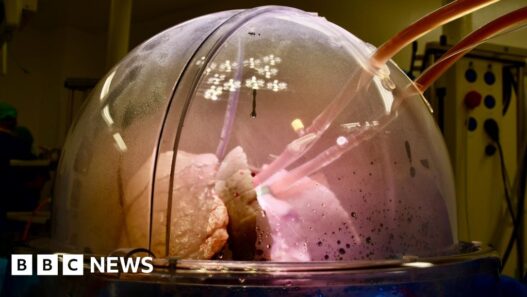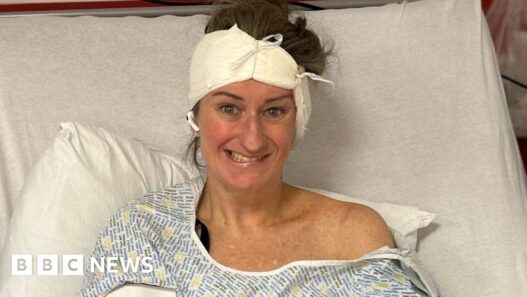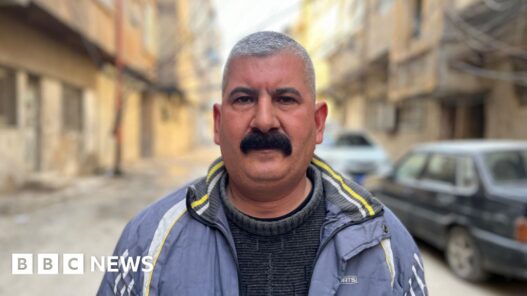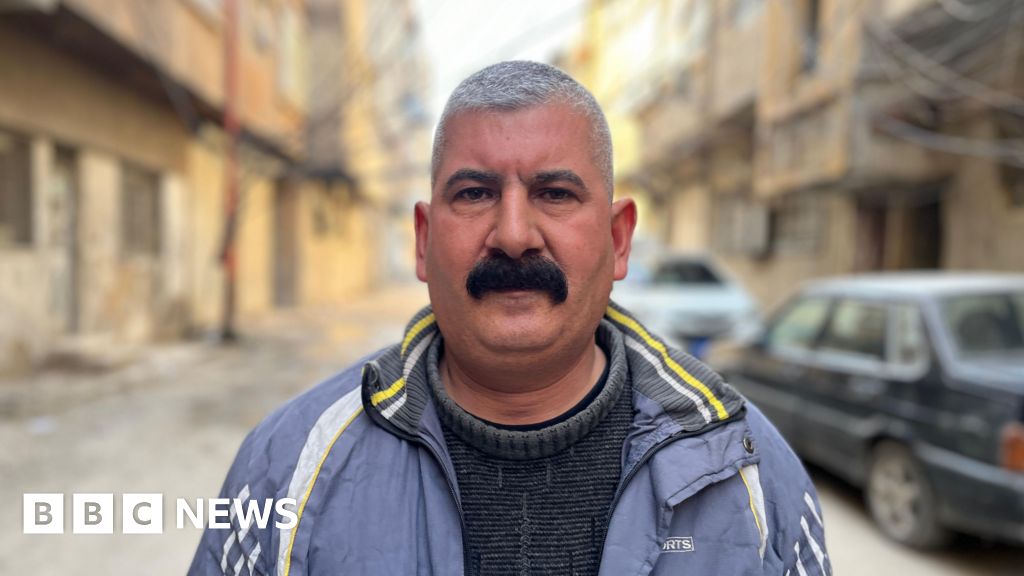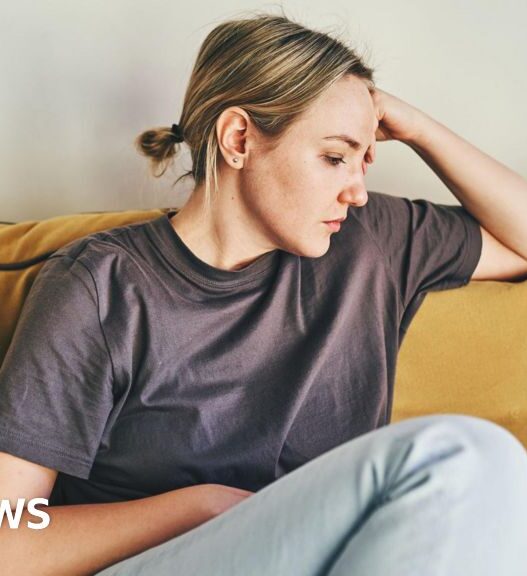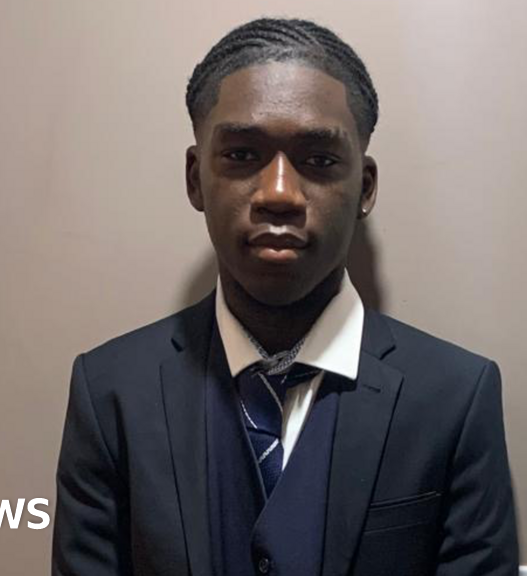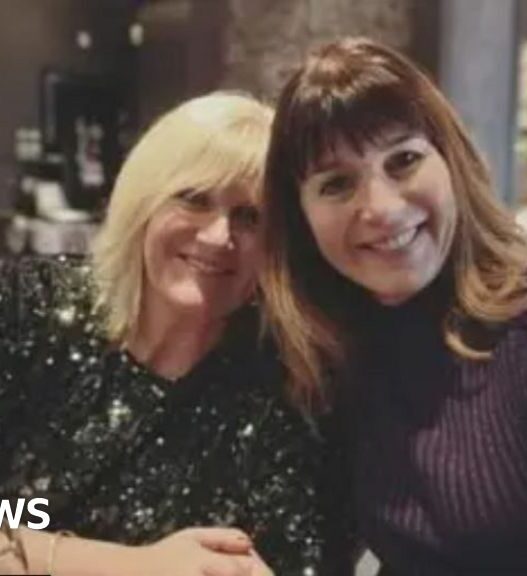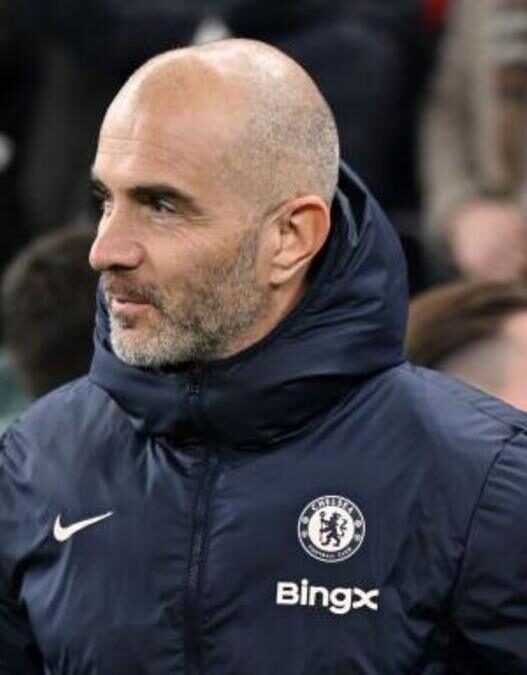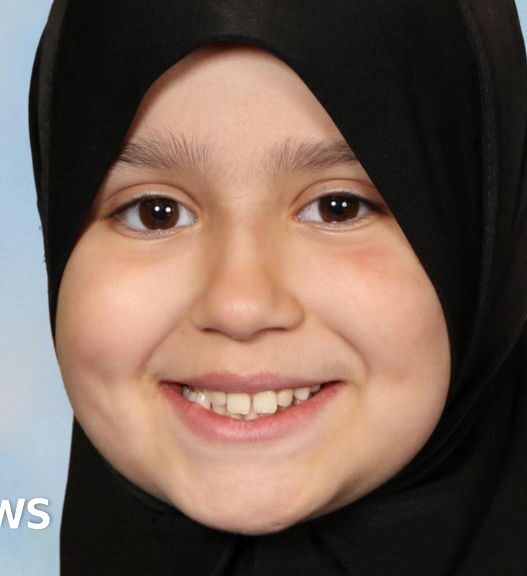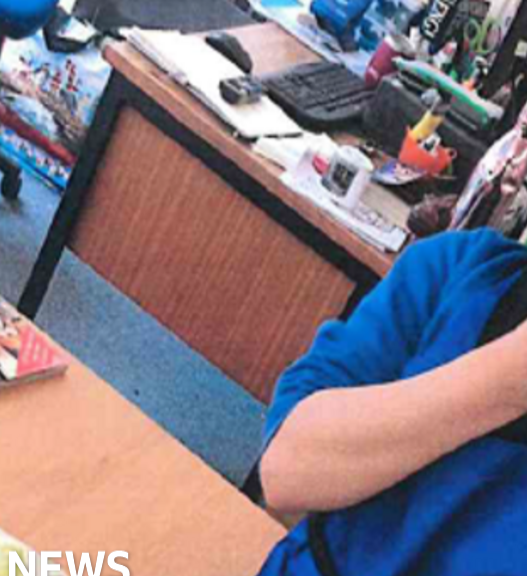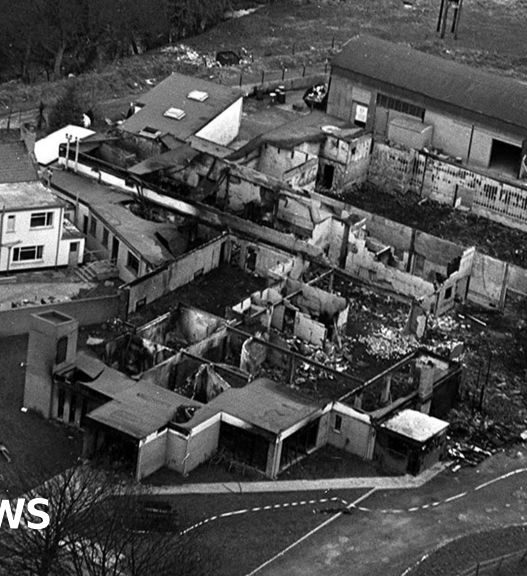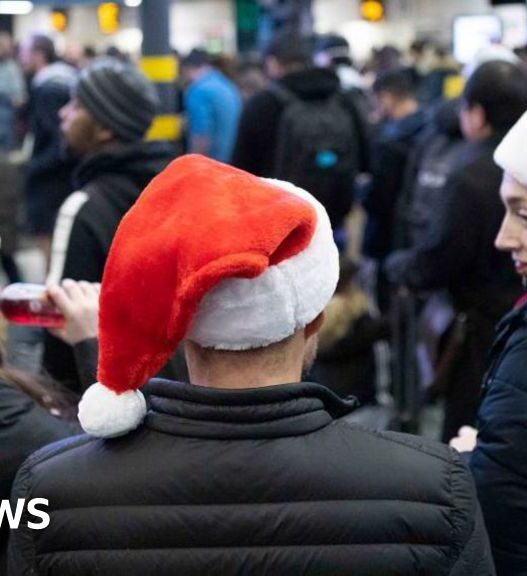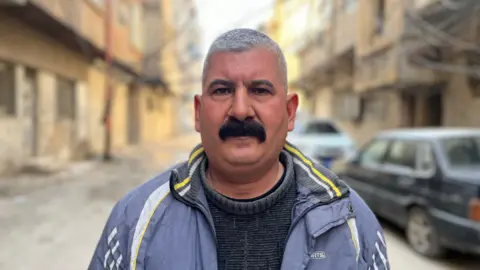 Amer Pirzada/BBC
Amer Pirzada/BBCTawfiq Deem is emotional, because it is the first time he has been able to speak freely about what happened to his family in 2018, in Douma in the Eastern Ghouta suburb of Damascus.
He says: “If I had spoken before, Bashar al-Assad’s forces would have cut off my tongue. They would have cut my throat. We were not allowed to talk about that.”
Tawfiq’s wife and four children aged between 8 and 12 – Jodi, Mohammed, Ali and Qamar – were killed in a chemical attack on April 7, 2018.
The Organization for the Prohibition of Chemical Weapons, a global watchdog, said in a report last year that it believed a Syrian air force helicopter left the nearby Dumayr air base shortly after 19:00 that day and dropped two yellow cylinders, causing them to burn. It struck two residential buildings, releasing highly concentrated chlorine gas.
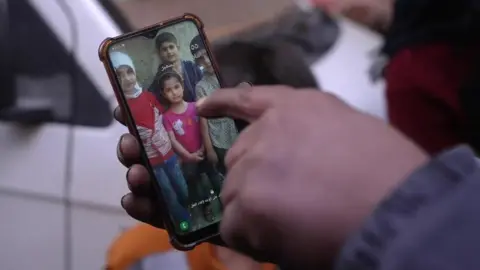
Tawfiq said that his family was outside his house on the ground floor when the bombs fell.
“I heard an explosion and people were screaming in the streets, ‘Chemicals, chemicals.’ I ran out. There was a bad smell. I saw yellow foam coming out of people’s mouths. My children couldn’t breathe, they were suffocating.” “I saw people lying in the street,” he says.
The Organization for the Prohibition of Chemical Weapons says at least 43 people were killed. Tawfiq says there are more than 100 dead.
“Even I was on the verge of death,” he says. “I stayed in the hospital for 10 days. Only five or six men in this compound survived.”
Assad’s government has denied ever using chemical weapons. Its ally, Russia, said the Douma attack was “planned.”
Eastern Ghouta was one of the areas that witnessed the most fierce conflict for five years during the civil war in Syria.
Ultimately, the regime imposed a siege on it and, in cooperation with its ally Russia, indiscriminately bombed the area as part of its effort to control it from rebel fighters led by the Army of Islam group.
As we drive through it now, the devastation is all around us. It is difficult to find a single building that does not bear the scars of war, as many have been badly bombed and are merely remnants of buildings.
On more than one occasion in Eastern Ghouta, chemical weapons – banned under the Geneva Protocol and the Chemical Weapons Convention – were used to attack Douma.
Bashar al-Assad’s forces seized Douma shortly after the chlorine attack, and the victims’ stories were never fully heard.
“Not a day goes by that I don’t think about my children,” Tawfiq says, pulling out the only photo he has of them, his eyes welling with tears.
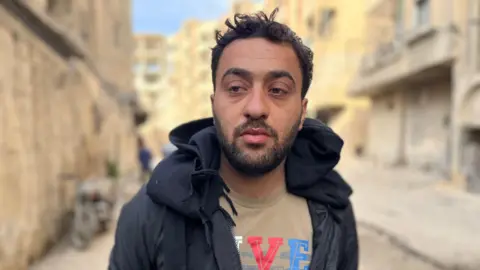 Amer Pirzada/BBC
Amer Pirzada/BBCAs we talk with Tawfiq, more people come to us to tell us their stories.
Khaled Naseer says his infant daughter Nour, his two-year-old son Omar, and his pregnant wife Fatima were also killed in the 2018 chlorine attack.
“Those killed were mostly children and women.”
He brings out the anger he had to suppress for six years.
“The whole world knows that Bashar al-Assad is an oppressor and a liar, and that he killed his own people. My wife was killed two days before our child was due to be born,” he screams, his emotions raw.
The chlorine gas attack was not the only time chemical weapons were used in the region.
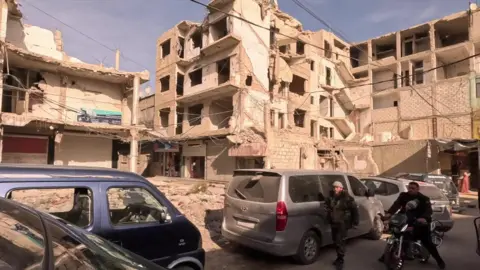
In 2013, missiles containing the nerve agent sarin were fired into several rebel-controlled suburbs in Eastern and Western Ghouta, killing hundreds of people. UN experts confirmed the use of sarin gas, but were not asked to assign any responsibility.
Al-Assad denied that his forces fired the missiles, but agreed to sign the Chemical Weapons Convention and destroy Syria’s declared chemical arsenal.
Between 2013 and 2018, Human Rights Watch documented at least 85 chemical weapons attacks in Syria, and accused the Syrian government of being responsible for most of them.
In addition to Douma in 2018, the OPCW Investigation and Identification Team identified the Syrian army as the perpetrator of four other cases of chemical weapons use in 2017 and 2018. A previous fact-finding mission, which was not mandated to identify the perpetrators, found that chemical weapons had been used in 20 cases.
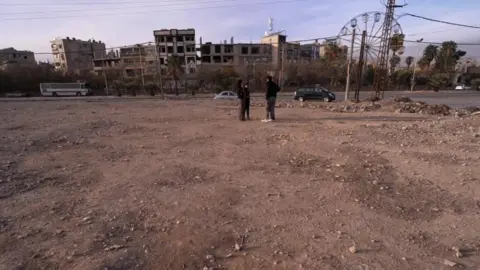
Khaled and Tawfiq took us to a hill on the side of the road, a short drive away. They believe this is where the regime took the bodies of their families and buried them in a mass grave.
Looking at the ground, amid the pebbles, clay and stones, pieces of bone appear, although it is not possible to know whether they are human remains.
“This is the first time I’ve ever set foot here, I swear to God. If I had tried to come here earlier, they would have [the regime] He was going to execute me,” Tawfiq says.
“On Eid, when I was missing my family, I would ride on the side of this road and glance towards this [the mound]. “It made me cry.”
Tawfiq wants to exhume the graves so that he can give his family a dignified funeral.
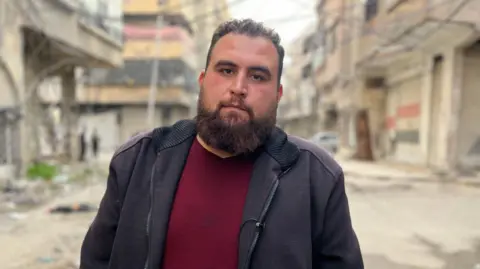 Amer Pirzada/BBC
Amer Pirzada/BBC“We want to conduct new investigations into the attack,” Khaled says. He says the testimony many gave to the OPCW fact-finding mission in 2019 was not reliable.
This is a claim confirmed by Abdul Rahman Hegazy, one of the eyewitnesses who testified before the mission, who says he was forced to provide the regime’s version of events.
“Intelligence officers detained me and asked me to lie. They told me to say that people were killed by inhaling dust and not by chemicals. They threatened me that if I did not agree, my family would not be safe. They told me that the house was surrounded by regime men,” he added.
One finding in the OPCW’s 2019 report on Douma states: “Some witnesses reported that several people died in hospital on 7 April as a result of heavy shelling and/or suffocation due to smoke and dust inhalation.”
Abdul Rahman says he and his family were shunned by society for years after he testified. He found it difficult to get a job.
Now he also wants a new investigation.
“I want the truth to come out. I can’t sleep. I want justice for every parent.”
Additional reporting by Aamer Pirzada, Sanjay Ganguly and Lin Al-Saadi


